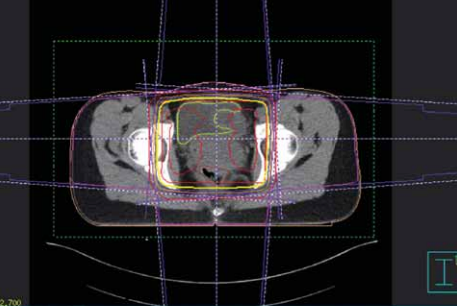As obesity rates continue to soar in women of reproductive age, gestational diabetes mellitus (GDM) is an increasingly important and prevalent problem. Appropriate recognition and careful management of GDM are essential. This will not only improve the outcomes of pregnancy, but may also have a beneficial effect on a woman’s lifelong risk of developing type 2 diabetes.
Editorial
A heartfelt, if belated, welcome to 2012. It can be difficult to feel positive at this time of year. The Christmas and New Year celebrations are well in the past, the waiting room is full of patients with coughs and colds, and it can seem a long time until summer. The next few months are likely to seem especially depressing this year given the gloomy economic outlook, but there is still a lot to look forward to in 2012.
From fertility to menopause: bridging the gap with the LNG-IUS
The levonorgestrel-releasing intrauterine system (LNG-IUS; Mirena) was first licensed in the UK for contraception in 1995. But it soon became evident that it had other clinical advantages and the LNG-IUS is now also available for the prevention of endometrial hyperplasia in women who are taking oestrogen as part of hormone replacement therapy (HRT).
After the cure: gastrointestinal problems in cancer survivors
Over the last 30 years, there has been a threefold increase in the number of cancer survivors. As a result more women are living with the long-term side-effects of their treatment. Gastrointestinal (GI) symptoms after pelvic radiotherapy are especially important, as they are common and impair quality of life. Since patients are likely to present in primary care, GPs and practice nurses can help to ensure appropriate initial management and referral.
STIs in the over-45s: A public health approach
Traditionally, older women and men have not been seen as being at risk of acquiring sexually transmitted infections (STIs), and have not been considered by policy makers. But infection rates are rising at a time of NHS changes, including the proposed transfer of responsibility for sexual health promotion to local authorities. Significant new resources are unlikely, so we need to think creatively about how to respond to this worrying trend.
Find the cause of non-menstrual bleeding
Non-menstrual bleeding is alarming for women, and is a frequent reason for a consultation with a health professional. There are many potential explanations. Most are benign, but some are potentially very serious. So a careful history and assessment are essential when a woman presents with post-coital, intermenstrual or postmenopausal bleeding.
Ultrasound: the guide to ovarian cyst management
Ovarian cysts are found in women and girls of all ages. They are usually asymptomatic, and most are benign and transient. Testing for tumour markers and risk of malignancy indices may help to predict the possibility of cancer, but imaging on ultrasound (US) remains the primary method of evaluating ovarian cysts.
Acute pelvic pain: when to raise the red flag
Most women experience occasional pelvic pain, but sometimes the symptom is so severe that it prompts them to seek medical help. Causes of acute pelvic pain in women are many, and can range in severity from a normal physiological event to a life-threatening illness. This article explains how to identify patients with the ‘red flag’ conditions that require urgent hospitalisation.
Prolapse
Postnatal depression: when is medication the answer?
It has been a busy end-of-year for the Primary Care Women’s Health Forum. We have been hard at work preparing for our Annual Conference. But Forum members have also been active in responding to the media on women’s health issues – further recognition of our increasingly important profile as advocates for women’s health.
Selecting the right patients for the new agents
Who should be treated with these new agents? When should patients be switched from warfarin or aspirin?
Dr Matthew Fay
GP and National Clinical Lead for Atrial Fibrillation, Westcliffe Medical Centre, Shipley
Dr Frances Akinwunmi
Consultant Pharmacist (Anticoagulation), Imperial College Healthcare NHS Trust
All change in atrial fibrillation
The management of AF is one of the most rapidly evolving areas of primary care today. How will these changes alter management in the coming months?
Dr Frances Akinwunmi
Consultant Pharmacist (Anticoagulation), Imperial College Healthcare NHS Trust
Professor David Fitzmaurice
Professor of Primary Care, University of Birmingham
Dr Matthew Fay
GP and National Clinical Lead for Atrial Fibrillation, Westcliffe Medical Centre, Shipley






















